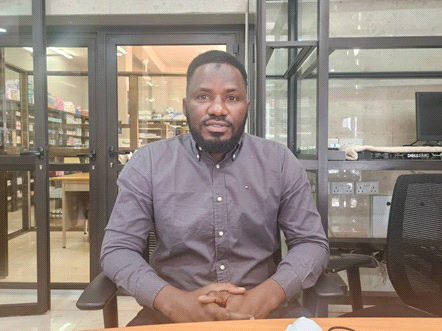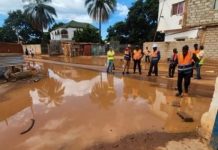By Nelson Manneh
The spokesperson of the Gambia Pharmaceuticals Association, Ma Hawa Njie, yesterday informed this medium that the importation of medical drugs in the Gambia is getting more and more challenging, as the authorities continue to come up with new regulations.
CERTIFICATE OF ORIGIN
Mr Njie, who is currently the Admin Secretary of ‘Stop Step’ Pharmacy, said the authorities have authorized all medical drug importers to secure a certificate of analysis or certificate of origin before they import drugs into the country which he said, is not easy to get.
“Most of the drug importers in the Gambia purchase their drugs from India and the UK, and to secure the said documents in India is not simple because we purchase our drugs directly from the manufacturers (Companies),” he said. He however said that for the UK, the story is different because they do not purchase their drugs directly from the manufacturers in that country, but from wholesalers.
“To secure a certificate of analysis from the manufacturers in the UK, one has to purchase a certain amount of a particular product, which requires a lot of income and a very big market space. If a Pharmacy owner in the Gambia buys such an amount of drugs and ferries them into the country, they will run at a loss because the market space is not available,” he said. Njie said drugs purchased from the UK have a PL-number which shows when a particular drug was manufactured; the company that manufactured it and the person who registered the product.
“The Medicine Healthcare Products Regulatory Agency Website can be used to verify all the drugs that come from the UK. The website can tell you all the information you need to know about a particular drug manufactured in the UK,” he said.
CHALLENGES ON DRUGS TESTING
On the challenges on drug testing, Njie said all pharmacy owners are facing financial challenges when it comes to this issue. Outlining the challenges, Njie said testing drugs outside the Gambia is very expensive and is pushing pharmacy owners to close businesses.
“To test one product of Syrup or Suspension drugs costs one thousand, four hundred dollars and for tablets, we pay one thousand dollars to test one product. This is very expensive and other costs are not involved,” he said.
The spokesperson of the Gambia Pharmaceutical Association added that registration of a drug product in the Gambia is three hundred dollars, ferrying the drugs and clearance is another expenditure.
“If we are to calculate all these expenses and come up with a price to sell our drugs, the ordinary Gambian will not be able to purchase these drugs and our intention as pharmaceuticals, is to ensure that drugs are available in the country and sold at reasonable prices,” he said. He confirmed that there are certain kinds of drugs that pharmacies are no longer importing because of the high cost of testing involved.
He said the other issue is the fluctuation of the exchange rate in the Gambia. “The fluctuation of exchange rates is bad for business. The CFA and other currencies continue to appreciate by the day. If one imports drugs from other countries on credit, one will run at a loss after realising that the exchange rate has escalated. This kills a business because it makes one to run at a loss,” Njie said.
Mr Njie further disclosed that there are lots of challenges that pharmacies are going through and if the trend continues, many will either close or will sell drugs at a very expensive rate which will not favour the ordinary Gambian. He said pharmacies create a lot of jobs for Gambians and said at ‘Stop Step’ pharmacy alone, “we have employed nine cleaners, and this is different from other employees working with us, and I am sure other pharmacies are doing the same.”



















